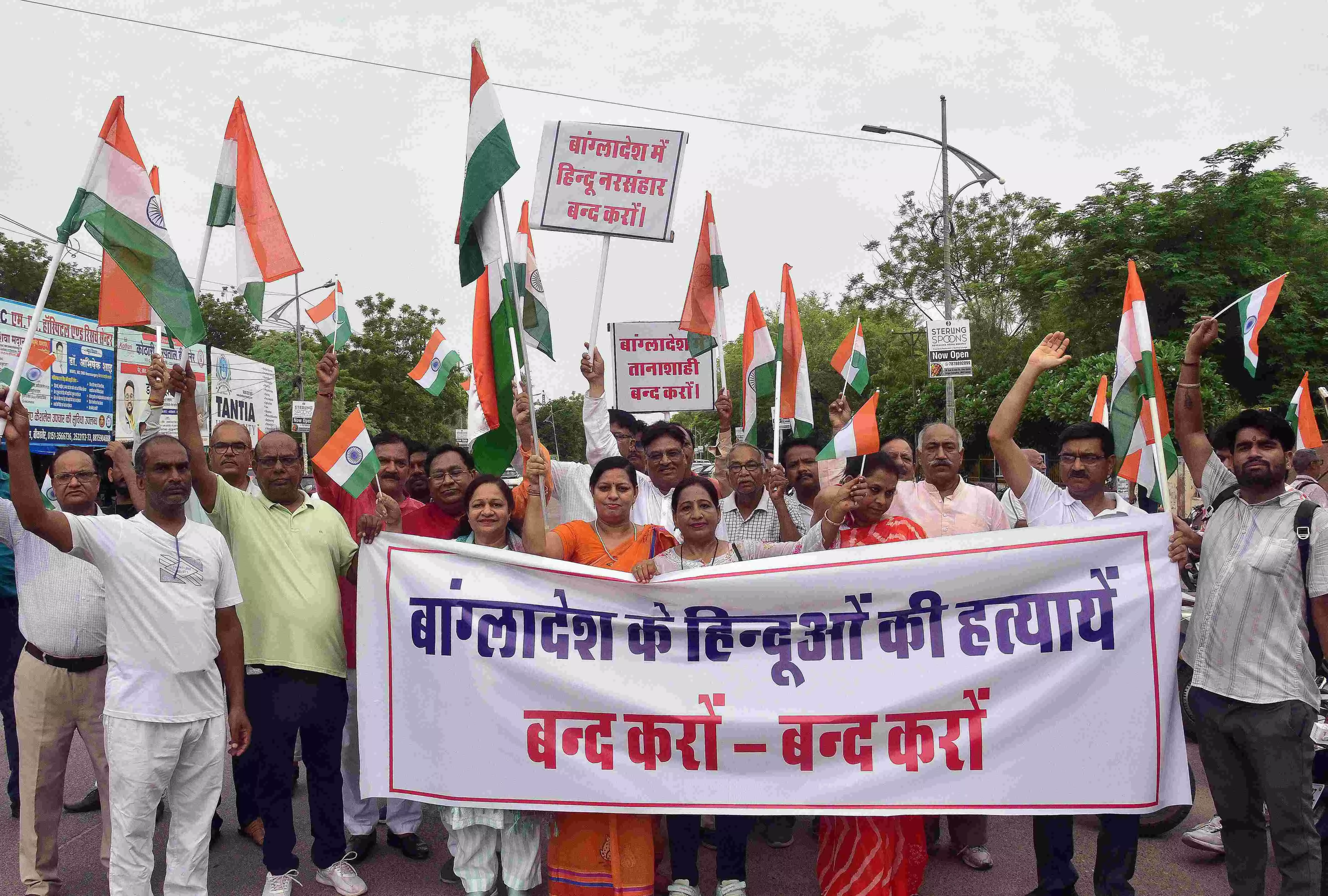Chaos unabated
In the aftermath of Sheikh Hasina's resignation, the army in Bangladesh has failed to restore order, and the political situation under the ‘ceremonial’ interim government appears volatile

At the time of writing this opinion piece, it has been around two weeks since former Prime Minister Sheikh Hasina resigned and left the country for a safer destination. As the Army took over to control the lawlessness and chaos that prevailed, it was expected that the mayhem, vandalism, and violent attacks on minorities would cease, and law and order would be restored. However, very unfortunately, the looters continued to rule the city, and there was no end in sight to the looting of houses and communal attacks. Dacoity by organised gangs and criminals freed from prisons had become rampant, with looting occurring at will, leaving innocent people in a state of insecurity and fear. There is no semblance of order. It defies all reason as to what the purpose of the Army takeover is, except for achieving political ends, given its blatant failure to protect the civilian population, particularly the Hindu minorities who continue to be brutally killed and their houses looted.
It appears imperative to mention that while it may look good for optics that Nobel Laureate Muhammad Yunus, now the Chief Adviser of the interim government, has assembled a full-fledged team for governance, the reality for the ramshackle country is different. His statements about restoring law and order are generally seen as aimed at a Western audience, who are believed to have facilitated his appointment at the helm of the government. However, on the ground, there is not an iota of improvement so far. It is becoming increasingly clear that the Army has decided not to assert itself in the name of neutrality. This is a very unfortunate situation, as the custodians of law and order are shirking their responsibilities instead of discharging them, and it would not be an exaggeration to state that they may be selectively or tacitly aiding the perpetration of violence.
It is also pertinent to mention that the police have gone on strike and are sticking to a 'work-to-rule' approach. This shows that the force meant to maintain law and order remains politicised and may be reluctant to act in the future.
Meanwhile, stepping up its psychological war propaganda and anti-India offensive, the glaringly anti-India media house Al Jazeera continues with its partisan reporting. Their charades are full of disinformation, fabricated and designed to downplay the atrocities committed against the Hindu minority. In a recent write-up, Al Jazeera strongly alleged that footage of violence and arson attacks on Hindu houses was misleadingly attributed to Muslims, stating that there were no mass murders reported in the incident.
The video, as part of the disinformation propaganda, also refuted ‘unsubstantiated’ claims, such as “24 burnt alive by mob” and “Minorities at the centre of attacks.” Al Jazeera has further claimed that only two Hindus have been killed since Hasina’s ouster on August 5—one police officer and one activist with Hasina’s Awami League (AL) party. Hindus constitute about 8 percent of Bangladesh’s 170 million people and have traditionally been strong supporters of the AL, which is generally viewed as secular compared to the opposition coalition, which includes an Islamist party. There are obvious attempts to cloud the communal attacks against the Hindus.
In other words, the Western and vested quarters hostile to India have intensified their publicity against India, taking advantage of the regime change in Dhaka. It appears as if this was premeditated and planned beforehand, coinciding with Hasina’s exit.
Some media outlets even urged the Indian government to prepare for a potential refugee crisis, predicting that Hindus would be driven out of Bangladesh. Speculation suggesting an ISI and Chinese connection to the popular Bangladesh movement was a common thread in social media posts by some commentators and media outlets. Some newspapers posted on X: "JeI Bangladesh politics doesn’t bode well either for the country or India. Jamaat’s track record of promoting cross-border terror… is part of recent history." In sum, the anti-India media has drummed up vicious propaganda to vitiate the situation.
In the meantime, the new interim government under Muhammad Yunus was sworn in, but in reality, it is performing more ceremonial duties than actual work to restore tranquillity. Muhammad Yunus, the banker, who is conspicuous for his lack of administrative abilities, seems to have embarked on giving statements that are provocative, especially toward India, ignoring all the courtesies expected of a responsible leader. He is also seen to be trying to woo leaders of other South Asian countries like Nepal, Sri Lanka, Maldives, Bhutan, etc., to speak in unison with his vague agenda. Muhammad Yunus, the Nobel Laureate, must know that these are critical moments to build the country, and making divisive speeches may not augur well in the long run.
As it is, every institution, taking advantage of the prevailing fragile situation, is making its own demands. Recently, students demanded the removal of Obaidul Hassan, Chief Justice of Bangladesh, and he was summarily removed on August 10 by the interim government, showing that it is meekly succumbing to all demands, trivial or otherwise.
Regarding the Bangladesh Army, Police, and other uniformed forces responsible for law and order, it could be said that after the recent political turbulence, the armed entities seem reticent and reluctant to use force to bring the situation under control. That’s a dangerous scene. Additionally, with BNP leader Khaleda Zia freed and her son Tarique Rahman rumoured to return to Dhaka from the UK, regional geopolitics is likely to undergo a sea change with JeI in tow. It is certain that New Delhi is intently watching the situation to adapt to rapidly changing developments.
The writer is a retired IPS officer, Adviser NatStrat, and a former National Security Advisor in Mauritius. Views expressed are personal



